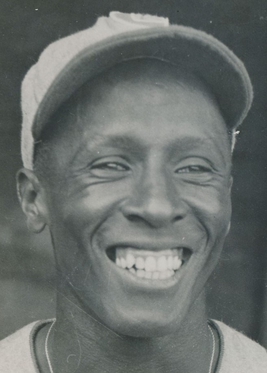Carlos Colás facts for kids
Quick facts for kids Carlos Colás |
|||
|---|---|---|---|
 |
|||
| Catcher | |||
| Born: December 4, 1917 Caimito del Guayabal, Cuba |
|||
| Died: December 4, 1987 (aged 70) Havana, Cuba |
|||
|
|||
| debut | |||
| 1940, for the New York Cubans | |||
| Last appearance | |||
| 1952, for the Memphis Red Sox | |||
| Teams | |||
|
|||
Carlos Celestino Colás (born December 4, 1917 – died December 4, 1987) was a talented Cuban professional baseball player. He played as a catcher, which is the player who crouches behind home plate to catch pitches. Carlos Colás played in the American Negro leagues during the 1940s and 1950s. These leagues were important because they allowed African-American and Latin-American players to play professional baseball when the major leagues were segregated.
Who Was Carlos Colás?
Carlos Colás was born in Caimito del Guayabal, Cuba. He was not the only baseball player in his family! His brother, José Colás, also played in the Negro Leagues. Carlos was known for his skills as a catcher. Catchers are very important players on a baseball team. They help guide the pitcher and protect home plate.
His Baseball Journey
Carlos Colás began his professional baseball career in 1940. He joined the New York Cubans, a team that played in the Negro Leagues. He played with the Cubans for two seasons, in 1940 and 1941. After that, he spent several years playing baseball in the Mexican League. This league was also a place where many talented players from different backgrounds could play.
Returning to the Negro Leagues
In 1949, Carlos Colás returned to the Negro Leagues. This time, he played for the Memphis Red Sox. He stayed with the Red Sox for four seasons, until 1952. After his time with the Memphis Red Sox, he went back to play in the Mexican League again. He continued playing there through the mid-1950s.
Later Life
Carlos Colás passed away in Havana, Cuba in 1987. He died on his 70th birthday, December 4, 1987. His career in both the Negro Leagues and the Mexican League showed his dedication to baseball. He was part of an important era in sports history.

